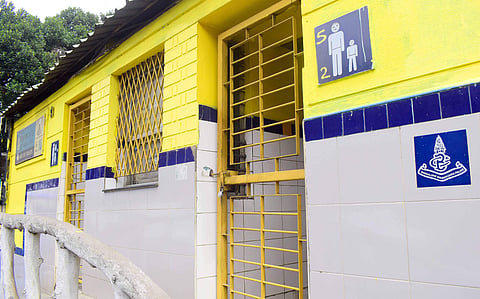

BHUBANESWAR: Odisha is among the five states in the country where safe child stool disposal has received little attention. According to the National Family Health Survey-5, stools of only 13.2 per cent (pc) of children (under age of 2 and living with mother) in the state are disposed off appropriately. Besides, the urban-rural gap in the unsafe disposal of children’s stool is wide.
As per the Ministry of Health and Family Welfare, children’s stools are considered to be disposed off safely if the child uses a toilet. Unsafe disposal of children’s stool makes them susceptible to many ailments including diarrheal diseases that transmit through faecal-oral route.
Odisha is followed by Jharkhand where the percentage of children whose stools are disposed off safely is 19.7, Bihar at 22 pc, Assam 20.2 and Chhattisgarh 31.1 pc. The proportion of children whose stools are disposed off appropriately is the highest 91 pc in Lakshadweep.
As far as methods of disposal is concerned, stools of 49.8 pc of children in the state are left in the open and that of 27.6 pc children is thrown into garbage. Only 5.3 pc children use toilets or latrines, according to the report.
This is contrary to the Swachh Survekshan Grameen-2022 report of Ministry of Jal Shakti which states that 94.7 pc of households in the state have access to toilets or latrines. The percentage of households having their own toilets among the households with access to toilets is 92.2.
Odisha is among one of the top performing states after Telangana, Tamil Nadu, Uttar Pradesh and Himachal Pradesh with around 10,861 villages declared open defecation free (ODF)-Plus till August this year.
A higher official of the Health department said that the department on its part is regularly creating awareness on washing hands, boiling drinking water, maintaining hygiene, safe disposal of children’s stools and using toilets.
“But this is a secondary intervention. In situations like this, factors like education and economy play a role. With so many villages being declared open defecation free, it needs to be seen if people are actually using latrines or not and if they can afford soaps, handwashes and even water in some areas to keep themselves and their children clean,” he said.